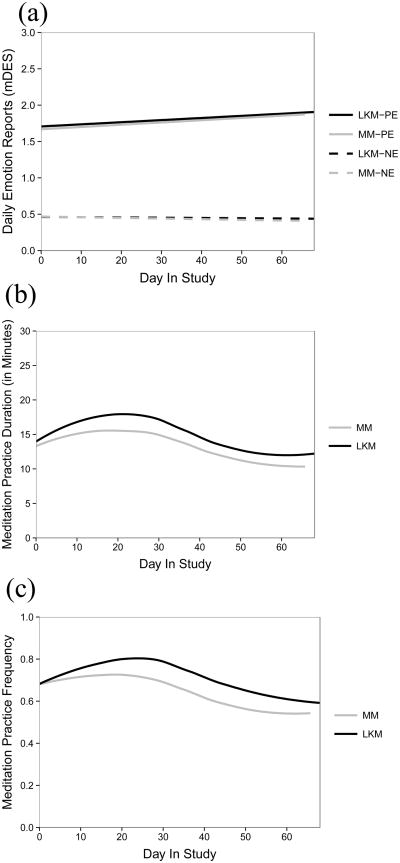
“I want you to be free from anxieties. The unmarried man is anxious about the things of the Lord, how to please the Lord.”
This passage explains that the unmarried is devoted to serve the Lord and have the opportunity for spiritual growth and blessings. It allows them to focus on other values in their life, apart from attachments and a considerable pile of responsibilities (Guzik, 2022). Detachment can provide a clearer vision of what your priorities are for gaining a sense of peace and clarity because you have finally let go of what’s been holding you back (Rose, 2022).
So why, at times, should you consider the topic of ‘detachment’, especially for relationships? It’s not about isolating yourself apart from your partner or being stuck in co-dependent relationships. Detachment lets you have the opportunity to rebuild yourself and set yourself back up for success, rather than just having the feeling of “I’ve established a relationship with someone and would spend time completely devoting myself to that person.”
The law of detachment is a spiritual principle that allows you to reconnect with yourself by releasing emotional attachments, whether those are relationships with people or expectations about activities (Centre of Excellence, 2024). Detachment is a form of self-love, since you can save yourself for a calm space and focus on what truly matters to you, like prioritizing taking care of yourself and setting personal boundaries. The most important point I want to emphasize in the law of detachment is building your independency because that’s what can set you up for success. This includes creating long-lasting connections and learning more about yourself to understand what you are capable of.
However, the law of detachment might be difficult in certain situations, such as distrust in close relationships. Either partner could step back to protect themselves from further mental and emotional damage, such as anxiety or depression, that could later be formed (Balk, De Jonge, Oerlemans & Geurts, 2019). This is a natural response which aligns perfectly well with the concept of detachment, such that we are managing our emotional well-being and promoting balance (Rose, 2022). In applying the law of detachment, it enforces you to realize that you cannot control the other person’s behaviours or the outcome of the situation. Clinging to the relationship, either out of attachment or fear of losing someone, may not necessarily provide value (Kegley, 2024). Though, when you are detaching away from someone, you can regain your sense of control and promote peace for your mind. By doing this action, you are developing a growth mindset and have the steady flow where you aren’t challenging the relationship for your outcomes. Instead, you are letting it flow naturally and realize that the consequences (e.g., relationship healing or breakups) couldn’t damage you further since you practiced the law of detachment (Rose, 2022).
Though, what about if you want to practice the law of detachment more, since it helps to gain a deeper insight of yourself? Here are various ways to incorporate it in your life:
- Learn mindfulness meditation, which is deeply rooted in Buddhist traditions to help improve your overall well-being (Fredrickson et al., 2017). By just observing your thoughts throughout meditation without providing judgments or any negative activity, you can enhance your mental health wellness (Rose, 2022). This is increasingly effective as it allows you to naturally bring positivity without forcing happiness, as it can disrupt your flow into a worse condition of mental health (Fredrickson et al., 2017).
For instance, imagine they are clouds flowing past you, and you have the feeling where you know you can’t stop them. Understand that your mental peace cannot stop you from chattering yourself apart.

- Release the past and focus on what’s present (Rose, 2022). Take your mistakes and history of events as lessons, rather than anchoring you and feeling like someone is watching you. Have that control and turn the wheel where it guides to the positive direction you want to be led. Instead, start making decisions that support your growth and immerse yourself into the event of life completely and freely. For example, listening to your friend’s conversation and provide mutual respect plus understanding, rather than multitasking and scrolling on your phone (Centre of Excellence, 2024).
- Building trust and self-resilience involves gathering your inner strength and taking guidance from the universe to be supported, even when there’s expectancy for results (Rose, 2022). At least, you can take risks with full confidence, understanding that your setbacks shouldn’t define your self-worth, and use the skills and resources around you to achieve your goals.
For more information: the Broaden-and-Build theory was developed by Barbara Fredrickson, who’s a psychologist that works on positive emotion management and created this theory in 1998 (Fredrickson, 2025; Fredrickson et al., 2017). This connects with the topic above because with self-resilience and trust, you are not only creating independence, but also developing positive emotions such as joy, peace, and gratitude. This allows you to freely open your mind and explore the possibilities that are around you. Creating a vision, where you can selectively choose your best decision. Overall, long-term strengths come along the way, such as deep-bonded relationships, improved mental health, and physical activity (Fredrickson et al., 2017). Research in this study from “Positive emotion correlates of meditation practice: A comparison of mindfulness meditation and loving-kindness meditation”, indicates that not only positive emotions can help you overcome challenges significantly but also improve your lifespan, even when there’s stress or difficulties that encounter you unexpectedly in life.
One key takeaway that I must utilize when applying the law of detachment is the prosperous advantages it can bring toward one’s life. Although this topic has been introduced in 2015 and onward, the rise of communities is emerging with apps such as Calm and Headspace, where they can promote meditation into a daily ritual habit that boosts productivity and mind positivity. I highly advise taking this approach, including all others that were explained above. And the main concept of this topic was to fully understand and bring exposure toward independency and not letting go of your self-worth. Your values and identity only belong to you, and and nothing will deceive this regardless of what obstacles had come toward your way. Realizing that you can always take a break to focus on yourself and start taking actions for what brings your vibration energy up, instead of seizing for results in any situations or outcomes (Kegley, 2024). Success defines what’s beneath you.

References
1 Corinthians 7 (ESV) – I want you to be. Retrieved from https://www.blueletterbible.org/esv/1co/7/32/t_corr_1069032
Balk, Y. A., De Jonge, J., Oerlemans, W. G., & Geurts, S. A. (2019). Physical recovery, mental detachment and sleep as predictors of injury and mental energy. Journal of Health Psychology, 24(13), 1828–1838. https://doi.org/10.1177/1359105317705980
Barbara fredrickson. (2025). In Wikipedia. https://en.wikipedia.org/w/index.php?title=Barbara_Fredrickson&oldid=1312890291
Clark, K. (2024, September 3). – Youtube. https://www.youtube.com/watch?si=mS-6hssPVJH_WzuN&v=34vRhK6Imw0&feature=youtu.be
Fredrickson, B. L., Boulton, A. J., Firestine, A. M., Van Cappellen, P., Algoe, S. B., Brantley, M. M., Kim, S. L., Brantley, J., & Salzberg, S. (2017). Positive emotion correlates of meditation practice: A comparison of mindfulness meditation and loving-kindness meditation. Mindfulness, 8(6), 1623–1633. https://doi.org/10.1007/s12671-017-0735-9
Guzik, D. (6/2022). Study Guide for 1 Corinthians 7 by David Guzik. Retrieved from https://www.blueletterbible.org/comm/guzik_david/study-guide/1-corinthians/1-corinthians-7.cfm
Mastering Detachment in Relationships: Steps & Benefits – Centre of Excellence. (2024b, February 9). Centreofexcellence.com. https://www.centreofexcellence.com/mastering-detachment-in-relationships/
OpenAI. (2025). ChatGPT (Sep 27 version) [When law of detachment is mostly discussed and where it’s found in today’s generation]. https://chat.openai.com/chat
Photo by Sai Krishna from Pexels: https://www.pexels.com/photo/white-bird-with-tree-behind-11169613/
Photo by Monstera Production: https://www.pexels.com/photo/multiethnic-couple-meditating-together-in-park-5384560/
Photo by Yan Krukau: https://www.pexels.com/photo/young-couple-holding-hands-on-beach-5479834/
Rose, S. (2022, March 13). All about the law of detachment in spirituality and how to use it. Sahara Rose. https://iamsahararose.com/blog/law-of-detachment-in-spirituality/
Note: The Free Your Mind Mental Health Society is an independent youth-led organization. The contents of this blog are not intended to be a substitute for professional medical advice, diagnosis, or treatment. Always seek the advice of your physician or another qualified health provider with any questions you may have regarding a medical condition. In the event of a medical emergency, please call your doctor or 911 or other local emergency numbers immediately.






